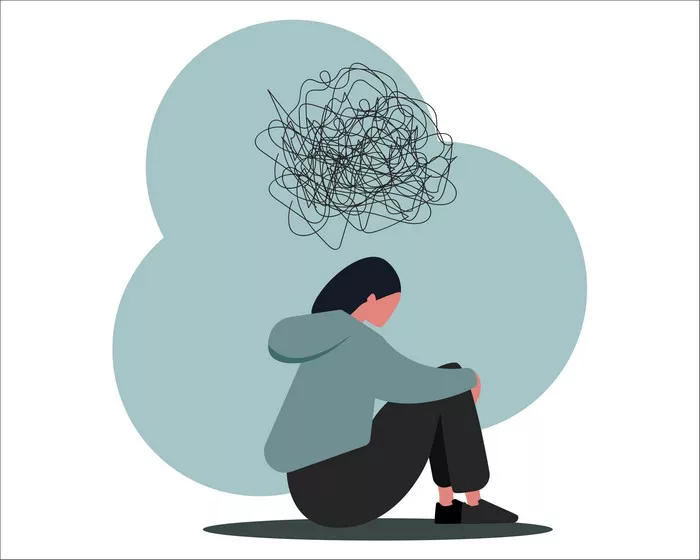A comprehensive assessment in mental health is a detailed and multifaceted evaluation of an individual’s psychological, emotional, and behavioral state. It is a critical component in the diagnosis, treatment planning, and management of mental health conditions. This process involves gathering extensive information through various methods and tools to create a holistic understanding of the patient’s mental health status. The goal is to ensure accurate diagnosis, understand the underlying causes of symptoms, and develop an effective treatment plan tailored to the individual’s needs.
The Importance of Comprehensive Assessment
Holistic Understanding
A comprehensive assessment aims to capture a complete picture of an individual’s mental health, encompassing emotional, cognitive, behavioral, and social aspects. This holistic approach allows clinicians to understand the complexities and interconnections between various factors affecting the patient’s mental well-being.
Accurate Diagnosis
Accurate diagnosis is crucial for effective treatment. A thorough assessment helps differentiate between different mental health disorders, which often present with similar symptoms. It ensures that the correct diagnosis is made, reducing the risk of misdiagnosis and inappropriate treatment.
Individualized Treatment Plans
Each person’s experience with mental health issues is unique. A comprehensive assessment provides detailed insights that inform personalized treatment plans, considering the individual’s specific needs, preferences, and circumstances. This tailored approach enhances the effectiveness of the treatment.
Monitoring Progress
Ongoing assessment is essential for monitoring the patient’s progress over time. It helps in adjusting treatment plans as needed, ensuring that interventions remain relevant and effective throughout the treatment process.
Components of a Comprehensive Mental Health Assessment
Clinical Interview
The clinical interview is the cornerstone of the assessment process. It involves a detailed conversation between the clinician and the patient, aimed at gathering information about the patient’s history, current symptoms, and overall functioning.
History Taking
History taking includes exploring the patient’s personal and family history, including any history of mental illness, medical conditions, substance use, and social and developmental background. This helps in identifying potential genetic, environmental, and social factors contributing to the current mental health issues.
Current Symptoms
The clinician assesses the nature, severity, and duration of the patient’s current symptoms. This includes exploring mood, anxiety levels, thought patterns, and behaviors. Understanding the symptomatology helps in forming a preliminary diagnosis.
Functional Assessment
A functional assessment evaluates how the patient’s symptoms impact their daily life. This includes assessing their ability to perform daily activities, maintain relationships, and fulfill roles at work or school.
Psychometric Testing
Psychometric tests are standardized tools used to measure various aspects of mental functioning. These tests provide objective data that complement the information gathered during the clinical interview.
Personality Assessments
Personality assessments help in understanding the patient’s personality traits and how they might be influencing their mental health. Tests like the Minnesota Multiphasic Personality Inventory (MMPI) and the Personality Assessment Inventory (PAI) are commonly used.
Cognitive Assessments
Cognitive assessments evaluate the patient’s cognitive functions, including memory, attention, problem-solving skills, and intellectual abilities. Tools like the Wechsler Adult Intelligence Scale (WAIS) and the Montreal Cognitive Assessment (MoCA) are often employed.
Symptom-Specific Scales
There are numerous scales designed to measure specific symptoms or disorders, such as the Beck Depression Inventory (BDI) for depression or the Hamilton Anxiety Rating Scale (HAM-A) for anxiety. These scales help in quantifying the severity of symptoms and monitoring changes over time.
Behavioral Observations
Behavioral observations involve the clinician’s assessment of the patient’s behavior during the interview and testing process. This includes noting any signs of distress, agitation, or other behavioral abnormalities that might not be reported by the patient but are crucial for diagnosis.
Collateral Information
Collateral information is obtained from sources other than the patient, such as family members, friends, teachers, or healthcare providers. This information can provide additional context and help in corroborating the patient’s self-reported data.
Physical Examination and Medical Tests
A physical examination and relevant medical tests are conducted to rule out any physical health issues that might be contributing to the mental health symptoms. This can include blood tests, neuroimaging, and other diagnostic procedures.
Risk Assessment
Risk assessment is a critical component of the comprehensive assessment. It involves evaluating the patient’s risk of self-harm, suicide, or harm to others. This helps in ensuring the patient’s safety and determining the level of care required.
The Role of Multidisciplinary Teams
A comprehensive mental health assessment often involves a multidisciplinary team approach. This team can include psychiatrists, psychologists, social workers, occupational therapists, and other healthcare professionals. Each team member brings a unique perspective and expertise, contributing to a more thorough and nuanced understanding of the patient’s condition.
Psychiatrists
Psychiatrists are medical doctors specializing in mental health. They are responsible for diagnosing mental health disorders, prescribing medications, and managing overall treatment plans.
Psychologists
Psychologists conduct psychological testing, provide therapy, and contribute to the assessment process with their expertise in human behavior and mental processes.
Social Workers
Social workers assess the patient’s social and environmental context, providing support and resources to address social determinants of mental health, such as housing, employment, and social relationships.
Occupational Therapists
Occupational therapists focus on helping patients improve their functional abilities and engage in meaningful activities. They assess how mental health issues impact daily functioning and develop interventions to enhance the patient’s quality of life.
Challenges in Comprehensive Assessment
Complexity of Mental Health Disorders
Mental health disorders are often complex and multifaceted, making the assessment process challenging. Symptoms can overlap between different disorders, and patients might have co-occurring conditions that complicate the diagnostic process.
Patient’s Ability to Self-Report
The accuracy of the assessment heavily relies on the patient’s ability to accurately report their symptoms and history. Factors such as memory issues, denial, or stigma can affect the quality of self-reported information.
Cultural and Linguistic Differences
Cultural and linguistic differences can impact the assessment process. Clinicians need to be culturally competent and sensitive to ensure that the assessment tools and methods are appropriate for the patient’s cultural background.
Resource Constraints
Comprehensive assessments can be resource-intensive, requiring significant time and access to various diagnostic tools and specialists. Limited resources in certain healthcare settings can hinder the ability to conduct thorough assessments.
Best Practices for Conducting Comprehensive Assessments
Developing Rapport
Establishing a strong therapeutic relationship is essential for gathering accurate information. Clinicians should create a safe and trusting environment, where patients feel comfortable sharing sensitive information.
Using Multiple Assessment Tools
Employing a variety of assessment tools and methods provides a more complete picture of the patient’s mental health. Combining clinical interviews, psychometric tests, and behavioral observations ensures a well-rounded assessment.
Continuous Training and Education
Clinicians should engage in ongoing training and education to stay updated with the latest developments in mental health assessment and treatment. This ensures the use of evidence-based practices and the most effective assessment tools.
Incorporating Technology
Advances in technology can enhance the assessment process. Telehealth services, digital assessment tools, and electronic health records facilitate comprehensive and efficient assessments, especially in remote or underserved areas.
Collaborative Approach
A collaborative approach involving the patient, family members, and multidisciplinary team members ensures that all relevant information is considered. This collaboration enhances the accuracy and relevance of the assessment.
Conclusion
A comprehensive assessment in mental health is a critical process that lays the foundation for effective diagnosis, treatment, and management of mental health conditions. By employing a multifaceted approach that includes clinical interviews, psychometric testing, behavioral observations, and input from a multidisciplinary team, clinicians can develop a holistic understanding of the patient’s mental health. Despite the challenges, adhering to best practices and leveraging technology can enhance the quality and efficiency of comprehensive assessments. Ultimately, this thorough evaluation process is essential for providing personalized and effective care to individuals experiencing mental health issues.
[inline_related_posts title=”You Might Be Interested In” title_align=”left” style=”list” number=”6″ align=”none” ids=”8763,8694,8690″ by=”categories” orderby=”rand” order=”DESC” hide_thumb=”no” thumb_right=”no” views=”no” date=”yes” grid_columns=”2″ post_type=”” tax=””]
































